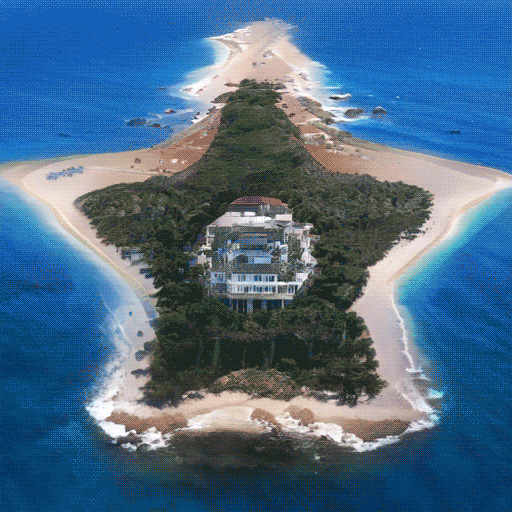No One Owns The Earth
Written by Caco Peguero for Ceylon’s digital periodical This Ain’t Soap’s Greenery Issue
I met an arborist at the airport Vino Vilo. We talked about redwoods. An hour later, my flight neighbor is telling me about the Facebook groups she is a part of. The best groups for plant tips, there are a lot more than I expected. What’s a ‘plant person’?
Hanging vines on the windows of my friend’s apartment dapple the light, it looks nice. “They really grow like weeds. All you have to do is stick this in a jar with water and it grows roots” he says while handing me the Cheese plant cutting he took.
“Everything grows in LA, you can throw a stick in the ground and it sprouts’’ my elderly Cuban neighbor remarks on the question of propagation.
How do all these people know so much about plants? During dinners with friends we talk about plans and plants. At a barbecue I overhear a landscape architect mention how corporate nurseries gather seeds from city trees, because they’re tall and accessible. I start collecting seeds. On a drive around the city I see a pedestrian remove a plastic bag and a pair of Fiskars from their backpack. With a flick of the wrist they’re gone with some clippings. It kind
of feels like plants are having a thing right now. I too have started taking clippings on my walks. I’m slowly becoming a plant person.
“Ask people what they want and they’ll say a faster horse.” Henry Ford’s quote comes to mind when earlier this year at the Davos economic forum Coca-Cola’s head of sustainability said that they’re continuing their habit of single-use plastic bottles because that’s what consumers are asking for. A weird way to start 2020 but not totally out of step with the leadership that has taken the US out of The Paris Agreement and defunded the Environmental Protection Agency. It’s like we’re living out an episode of Captain Planet. Plastic has been found at the bottom of the Mariana trench. Plastic has been found in fish, earthworms, and in the air. Humans are unknowingly consuming microplastics all year.
As one of the biggest producers of plastic waste in the world, Coca-Cola is missing an opportunity to lead, especially considering their position on the global list of top companies. But nature finds a way. Ideonella sakaiensis, a PET eating bacteria filling a gap in the ecosystem, was discovered in 2016. Cress, an African & Euro- pean weed, has been shown to absorb nanoplastics in lab settings. The world will be fine without us but it’d be great to stick around.
This isn’t a new conversation. I just thought that it started some- time in the 80’s with ice cores and new data. In 1864, George Perkins Marsh published Man and Nature: Or, Physical Geography Modified by Human Action. The aim was to question how we see the relationship between humans and the planet. He claimed that humans are not made from nature but exert a force on it. Changing it to our desires can ultimately lead to our own destruction. Marsh didn’t draw conclusions from the industrial revolution but instead gave examples of Mediterranean civilizations collapsing due to deforestation. The words ring clear from a distance of 156 years as Brazilian president Jair Bolsonaro, responding to criticism about his policies said, “The Amazon is Brazil’s, not yours.’’ He continues to drop fines for environmental crimes. You can almost make out Daniel Plainview in the background yelling “I drink your milkshake!”
Earlier this year, again at Davos, the World Economic Forum announced the creation of their new One Trillion Tree Initiative and as of February 13.6 billion trees have been planted. Four of the top ten tree-planting countries are African. When we needed boats we found trees good for it. While constructing our cities we used lumber for framing, floors, and furniture. With each new ask the forest shows us a plant with a potential answer. I have this weird realization that throughout history it’s been the same Earth.
Economist Robert Heilbroner in a 1970s paper titled Ecological Armageddon said, “As in all spaceships, sustained life requires that a meticulous balance be maintained between the capability of the vehicle to support life and the demands made by the inhabitants of the craft. Until recently, those demands have been well within the capability of the ship, in its ability both to supply the physical and chemical requirements for continued existence and to absorb the waste products of the voyagers.”
Fruit, rubber, paper, cork, and olive oil are all plant products. Along with aspirin and oxygen we have found a handful of uses so far with more to be discovered. The legacy of this planet should belong to all of us. Articles about animals going extinct and ecosystems being destroyed seem to be showing up more often on my news feed. Not sure if it’s the algorithm or if I’ve finally started paying attention.
Wangari Maathai, political activist and first African woman to win the Nobel Prize, provides encouragement for however you choose to engage. “It’s the little things citizens do. That’s what will make the difference. My little thing is planting trees.” She started the Billion Tree Initiative which inspired the Trillion Tree Initiative.
I still take clippings. You know how addictive it can be if you’ve done it before. Answering calls from my family I get, “Let me guess, you’re watering your plants.” So, I call myself a ‘plant person’. My thing is I take clippings and I share them with people. What’s your thing?
